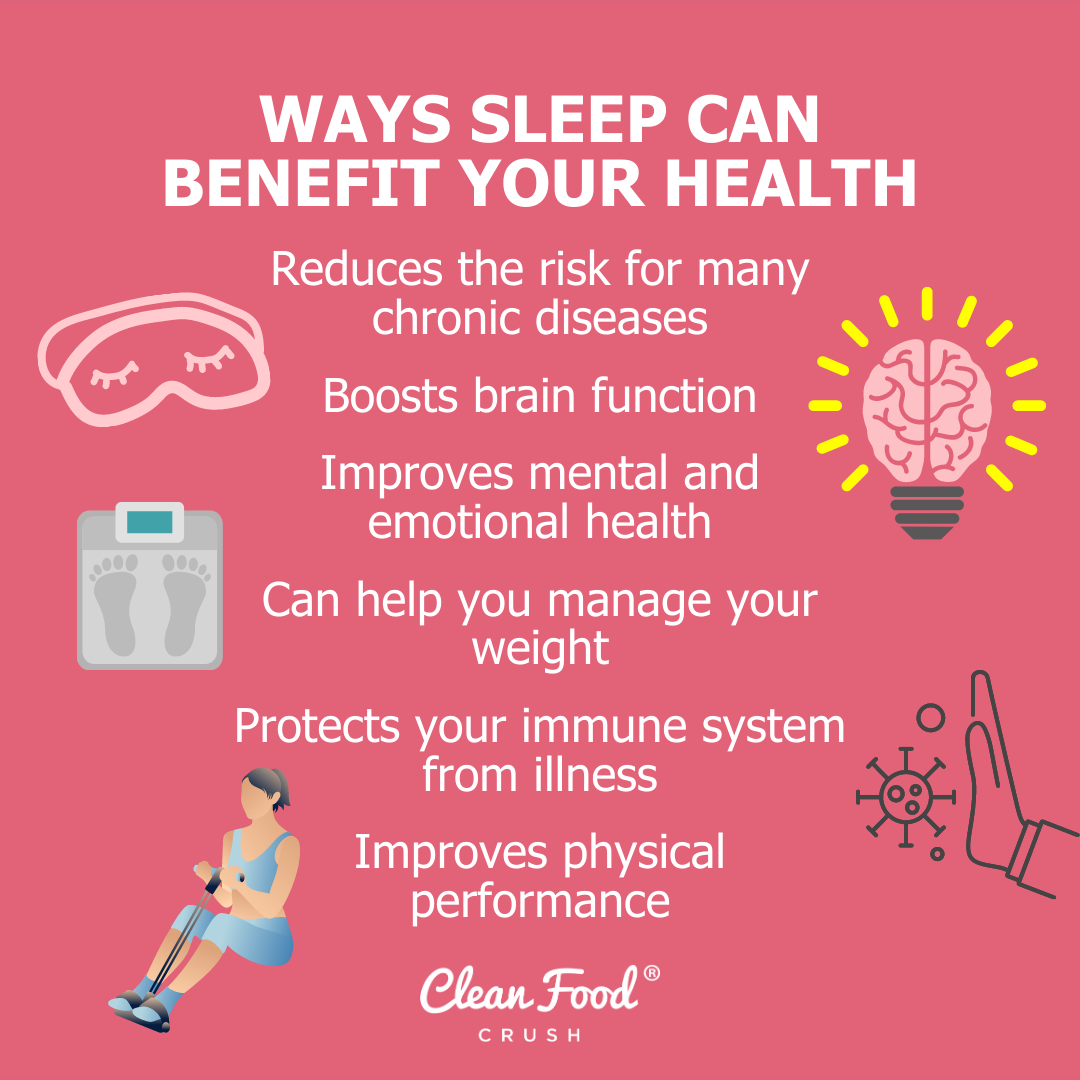This post contains affiliate links. Please see our disclosure policy.

Why Sleep Matters for Your Weight and Health
You’ve probably heard that sleep is important for your health. Like eating and drinking, sleep is an essential function that your body needs in order to survive and function properly. This is why not getting enough sleep can be damaging to both your mental and physical health.
If you’re someone who is dealing with health ailments or having difficulty managing your weight, your sleep is a good first place to turn to when addressing these concerns. Keep reading to learn more about the many ways that sleep can benefit you.

Ways that Sleep Can Benefit Your Health
Reduces the risk for many chronic diseases. Sleep plays an important role in your physical health. Your body works on healing and repairing itself during sleep, including things like heart and blood vessels. Sleep also influences how your body is able to regulate blood sugar levels. Not getting enough sleep is therefore linked to an increased risk of heart and kidney disease, high blood pressure, diabetes, stroke, and more.

Boosts brain function. Sleep is crucial for the developing brain of infants and young children as well as for adult brain function. Your brain literally “resets” while sleeping which allows it to be refreshed and ready to learn and process new information the next day. Not getting enough sleep can lead to learning disabilities in young people and cognitive decline such as Alzheimer’s disease in older adults. Sleep also supports many other aspects of thinking including memory, problem-solving, creativity, and judgment.
Improves mental and emotional health. Sleep is also essential for managing your mood and well-being, so it makes sense that the phrase “woke up on the wrong side of the bed” refers to someone who is irritable. Getting chronically poor sleep may contribute to mental health disorders including depression and anxiety.

Can help you manage your weight. People who don’t get enough high-quality sleep are more likely to be overweight or obese. Sleep helps maintain a healthy balance of appetite hormones that make you feel hungry and full. Not getting enough sleep is likely to make you feel hungrier and eat more throughout the day. Sleep deprivation can also increase cravings for less healthy foods, which can further make weight management more challenging.
Protects your immune system from illness. Like every other part of your body, your immune system also relies on sleep to stay healthy and to fight against harmful substances. Not getting enough sleep may increase your likelihood of getting sick and reduces your body’s ability to heal.
Improves physical performance. Getting enough sleep will help your body perform better in athletics and other forms of exercise. Since physical activity is a vital component of good health, getting enough sleep can help improve your health in this way.
In Summary
Sleep is one of the pillars of good health. The American Academy of Sleep Medicine recommends that adults get at least 7 or more hours of sleep per night, which is referring to high-quality, uninterrupted sleep. If you’re someone who struggles to get enough sleep, there are things you can do to help, including diet and lifestyle changes as well as natural supplements. You can read more about tips for promoting better sleep in this post.



















